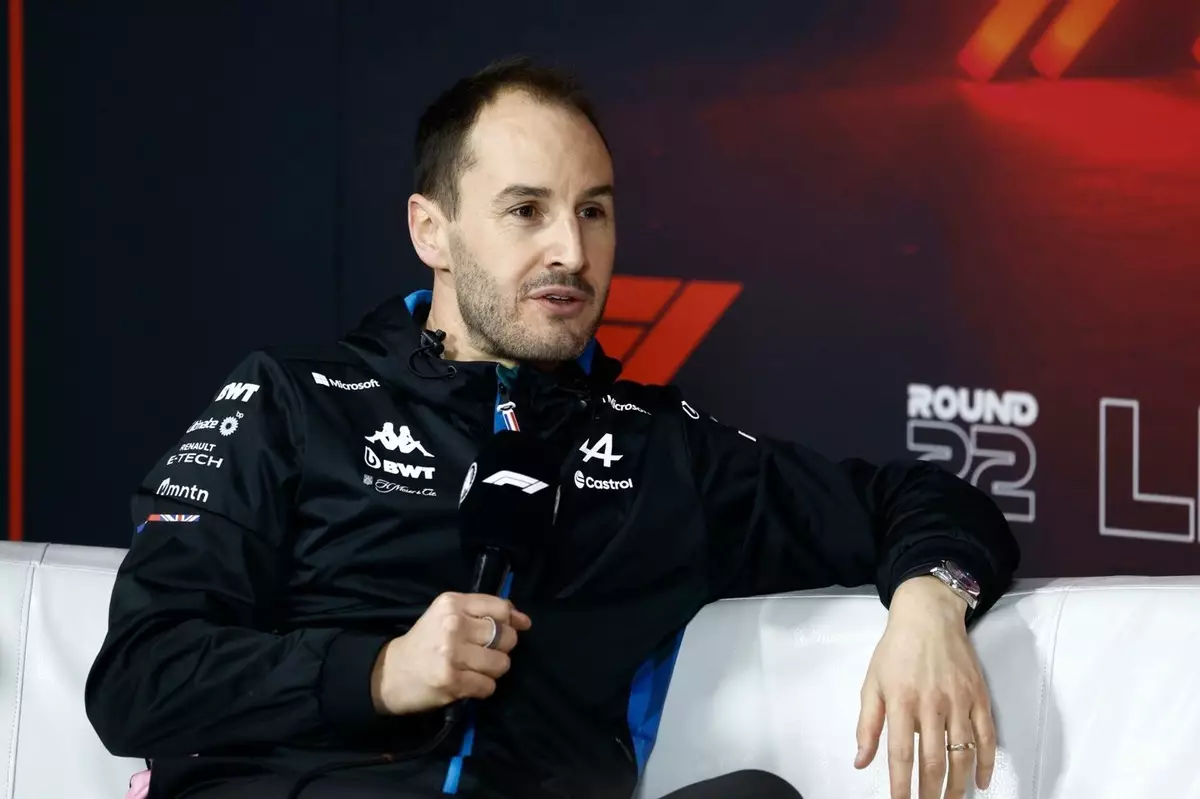In the fast-paced world of Formula 1 (F1), the ability to adapt and evolve is crucial. The Alpine F1 team, under the leadership of Oliver Oakes, has demonstrated a remarkable transformation throughout the 2024 season. This metamorphosis stems from a series of strategic decisions aimed at streamlining operations and enhancing competitiveness. By refining its team structure at Enstone and placing a renewed emphasis on efficiency, Alpine has begun to regain its position within the highly competitive midfield.
When Oakes, alongside the seasoned advisor Flavio Briatore, was brought in by Renault boss Luca de Meo, the initiative was clear: restore stability at Alpine after a tumultuous start to the 2024 campaign. This transition did not merely focus on performance on the racetrack; there was a significant operational overhaul behind the scenes. The decision to cease development on the F1 power unit program, opting instead for a customer deal with Mercedes for the forthcoming 2026 engines, was a pivotal moment. This choice allowed the team to channel resources where they would have the most significant impact – on the car itself.
The restructuring was not limited to power units; it extended to the broader Enstone operations. With a reduction in staff from over 1,100 to around 900 employees, the team has adopted a leaner model. Oakes has expressed that this reduction not only reflects the need for efficiency but also emphasizes the importance of focusing on core competencies. The commitment to produce competitive racing cars has become central to the team’s ethos, redefining its mission as it seeks to reclaim its competitive edge.
In a landscape governed by budget caps, the strategic allocation of resources is paramount. Oakes has acknowledged the tough realities of F1, underscoring the necessity of putting resources in areas that yield tangible results. With an eye on efficiency, the team has made it clear that its focus is on maximizing the performance of its racing car. This shift in perspective is crucial in a sport where every fraction of a second counts.
The reduction in workforce may raise concerns about capabilities, but Oakes assures stakeholders that the core personnel at Enstone are among the best in the industry. He highlights the historical significance of the Enstone facility, stating that its long-standing presence in F1 does not just serve as a testament to its heritage but also as a foundation for future achievements. The commitment of the team to invest in the right technology and human resources illustrates a forward-thinking approach that aims to establish Alpine as a formidable force on the grid.
Investment in technology plays a critical role in the reawakening of Alpine. Oakes noted that the team has made significant investments in key areas such as simulators and dynos—tools essential for developing competitive cars. These assets, though often overlooked, are vital for enhancing performance and accuracy in design and engineering. The team’s commitment to continual investment demonstrates a broader strategy to not only catch up with rivals but also establish a sustainable path forward.
Furthermore, the team’s streamlined approach allows for flexibly incorporating new technologies and methodologies into their operations. As the race for innovation in F1 accelerates, the ability to integrate cutting-edge tools into development processes will be a determining factor in success or failure.
While Oakes remains cautious about setting specific timelines for Alpine’s resurgence within the forefront of the midfield, the optimism surrounding the team’s potential is palpable. With a solid foundation established through strategic reorganization and investment, the groundwork has been laid for future success.
The journey ahead will undoubtedly present challenges as competition in F1 remains fierce. However, Alpine’s renewed focus on efficiency and performance serves as a promising sign for fans and stakeholders alike. By learning from past struggles and embracing a more streamlined operation, Alpine is positioning itself for a strong showing in the coming seasons. Whether they can truly ascend to the upper echelons of Formula 1 remains to be seen, but the path they are forging speaks volumes about their resolve to reclaim their status in motorsport.

